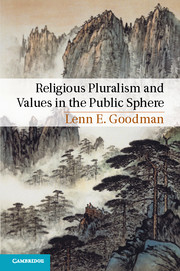Some Concluding Thoughts
Published online by Cambridge University Press: 05 June 2014
Summary
Diversity of outlooks, practices, values, and ideas is inherent in the human condition. Cultures differ. So do personal histories, circumstances, and prospects. Differences between generations may widen as trade, travel, exile, migration, and communication speed our cultural interactions. The question of this book has been how we should cope, as individuals and communities, with the dazzling diversity we confront. The answer I have proposed is rooted in the ideal of openness. Openness does not mean relativism, and skepticism is not its nutriment, although it may be a byproduct or a motive. One can respect differences without abandoning one's commitments. One needs to know oneself if one is to engage in fruitful dialogue with others. A relativism that pretends all views are equally sound or welcomes all practices as equally wholesome or apposite is not generous or practical but patronizing. A skepticism that dismisses all thoughts but what seems self-evident is just the opposite of open-minded. And neither relativism nor skepticism affords stable ground for self-cultivation.
Groups, like individuals, are nourished by what they learn from others. So societies that favor intercommunal understanding are the richer for it. They make a resource of what too often seems a difficulty. The notion that diversity spells trouble may stem in part from the illusion that societies need a common ideology and uniform practices. I do not think either sort of unity has ever existed, unless as an artifact of lazy analysis or simple stereotyping. Just consider how different idiolects can be. Ways of living and thinking are far more varied. Neuroscientists find more synaptic connections in each human brain as it actively responds to experience than there are elementary particles in the universe. So efforts to impose lockstep ideas or behaviors belong not to any history of harmony but to the black record of oppression, be its idols and ideals secular or sacred. The carnage and wreckage left by attempts to cast humanity into a single mold still clutter the world in the broad wake of the Inquisition and Europe's religious wars. They scar living memory in the aftermath of the Holocaust, the Gulag, the Cultural Revolution, and the Cambodian killing fields.
Information
- Type
- Chapter
- Information
- Religious Pluralism and Values in the Public Sphere , pp. 193 - 202Publisher: Cambridge University PressPrint publication year: 2014
